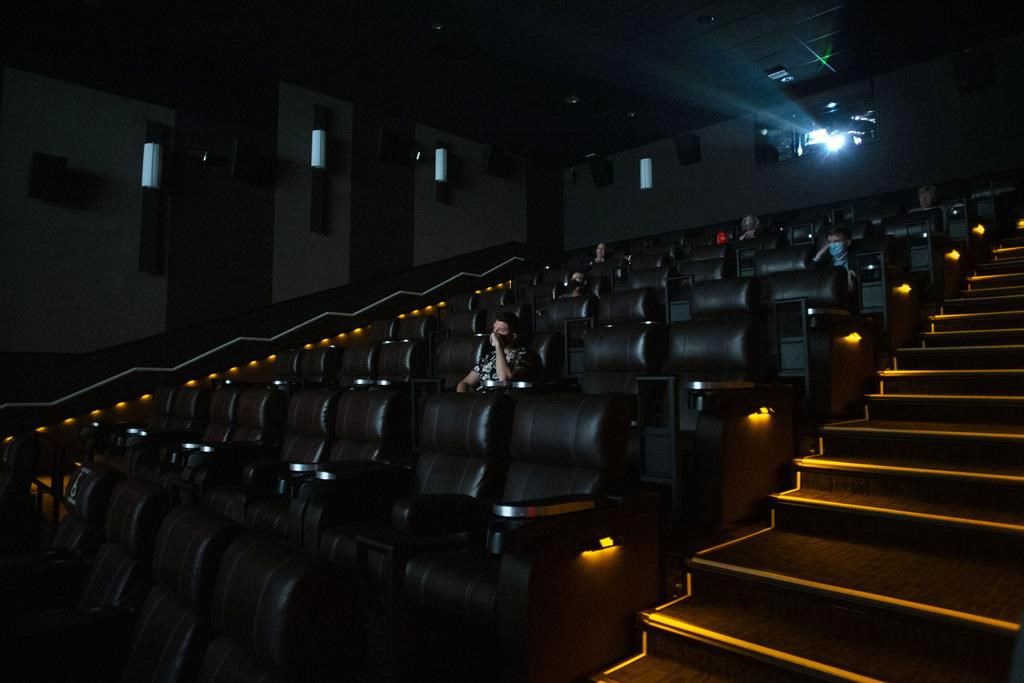Thomas Sajan was looking forward to seeing a South Indian action movie at a theatre in British Columbia, but a series of shootings elsewhere caused cancellation.
Sajan, a self-proclaimed South Indian film enthusiast, film had been eagerly anticipating Malaikottai Vaaliban, a popular Malayalam-language movie about an aging warrior ruling over a vast desert.
Just before the scheduled show in late January, Cineplex notified that the screening was cancelled due to uncontrollable circumstances and would issue refunds.
Sajan, who moved from Kerala, India to Surrey, B.C. in 2017, expressed deep disappointment.
“I was really sad and we were never told why,” he mentioned in a phone interview.
However, the events leading to the cancellation soon became clearer.
Earlier that day, police in Ontario reported shootings at four theatres in the Greater Toronto Area that had planned to screen Malaikottai Vaaliban.
Some locations had shattered windows, but there were no injuries reported.
York Regional Police stated that, while the drive-by shootings were under investigation, they believed the incidents were targeted and involved the same suspect.
For Sajan and Saleem Padinharkkara, a South Indian film distributor in Canada, these reports were not surprising.
Padinharkkara, residing in Ontario and the founder of film distribution company KW Talkies, claimed that there is an ongoing effort to stop popular South Indian films from being shown in major Canadian theatre chains like Cineplex.
He argued that a group of distributors are working to ensure that these films are only shown in a select group of smaller, independent theatres that charge higher ticket prices than large chains like Cineplex or Landmark Cinemas.
According to him, this is part of a strategy to secure higher profits by controlling the market.
For instance, he mentioned that Cineplex tickets can cost between $13 to $16, whereas people may have to pay up to $30 per ticket to watch a South Indian movie at a smaller theatre.
Padinharkkara described it as similar to a cartel and noted that he has personally received threats for attempting to distribute rights to South Indian movies to specific theatres.
“It’s disheartening. It’s soul destroying. I’ve lost money too. There’s a set of theatres in the GTA that are benefiting from these attacks. For me, it’s very blatant what’s happening but … there’s nobody talking about what’s happening.”
Padinharkkara mentioned that cancellations, like those affecting Malaikottai Vaaliban, result in a substantial loss for the distributor.
“There is no way he is going to recover his money and movies have a shelf life.”
The Movie Theatre Association of Canada expressed awareness of various incidents at member theatre locations and frustration over criminal activity preventing the safe screening of certain content.
The association has conducted productive meetings with Public Safety Canada and is collaborating with local authorities and the federal government to raise awareness.
Public Safety Canada did not provide a statement regarding the shootings.
Cineplex’s CEO Ellis Jacob mentioned in February that the company suffered financial losses due to the shootings, but it is still committed to offering international programming. This type of programming makes up 10 percent of its annual box office revenues, compared with four percent at many of its counterparts.
“We are closely collaborating with the authorities,” Jacob said, emphasizing that the safety of staff and moviegoers is the most important priority.
There has been increasing Canadian interest in South Indian cinema.
Sajan attributed this partly to the pandemic, when people sought a wider variety of content to stream while theatres were closed. He also mentioned the growing numbers of immigrants from southern India.
Padinharkkara stated that the rights to distribute a South Indian movie in Canada cost between $10,000 and $20,000 in 2010. Now, the cost of those rights can reach up to $200,000.
Sajan has initiated a petition signed by about 500 people, urging the federal government, the RCMP, Cineplex, Landmark Cinemas, and others to take action.
“These criminal activities not only undermine the cultural diversity represented by South Indian cinema but also limit the choices available to movie lovers in Canada,” his petition states.
“The attacks and intimidation tactics against theatres daring to show South Indian movies demonstrate a blatant disregard for the principles of fair competition and freedom of artistic expression.”
— With files from Tara Deschamps




